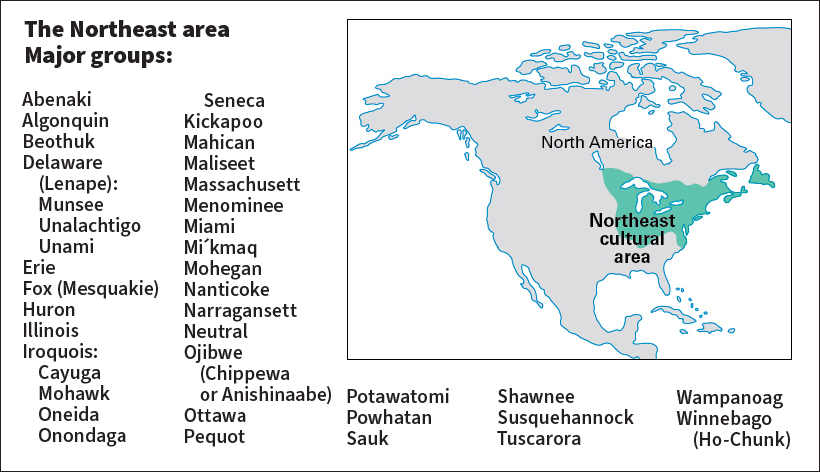Seneca are a Native American people who once occupied an area from the Genesee River to Canandaigua Lake in western New York. Their Seneca name is O-non-dowa-gah, which means people of the great hill. The name refers to a hill near Canandaigua Lake where, according to a Seneca legend, the tribe originated.

The Seneca were the largest of the five tribes that had joined together by about 1100 to form an organization called the Iroquois League or the Five Nations. The other tribes in the league were the Cayuga, Mohawk, Oneida, and Onondaga. About 1722, the Tuscarora joined the Iroquois League, which then became known as the Six Nations. The Iroquois called themselves Haudenosaunee. Within the league, the Seneca were called keepers of the western door because their land made up the westernmost part of the Iroquois territory.
The name Haudenosaunee means people who are building a longhouse. The name refers to their traditional rectangular dwellings. Like other Haudenosaunee, the Seneca once built their villages on hills near a river. A tall wooden stake fence surrounded most settlements to protect them from attack. Seneca villages included 30 to 150 longhouses, each of which provided shelter for several related families.
According to the 2020 United States census, there are about 6,500 Seneca. Most of the Seneca live on three reservations in western New York: (1) the Allegany Reservation, (2) the Cattaraugus Reservation, and (3) the Tonawanda Reservation. They make up two separate political groups, the Seneca Nation of Indians and the Tonawanda Band of Seneca.
The Seneca Nation was formed in 1848, when the residents of the Allegany and Cattaraugus reservations abolished the system of government by chiefs. Some of these reservations’ chiefs—who were hereditary, permanent leaders—had become corrupt. The two reservations adopted a constitution, which established a government headed by elected officials. The Tonawanda Reservation has maintained the traditional governing council of chiefs. Other Seneca live in Oklahoma and in Ontario. In Canada, they are recognized as a First Nations people.
